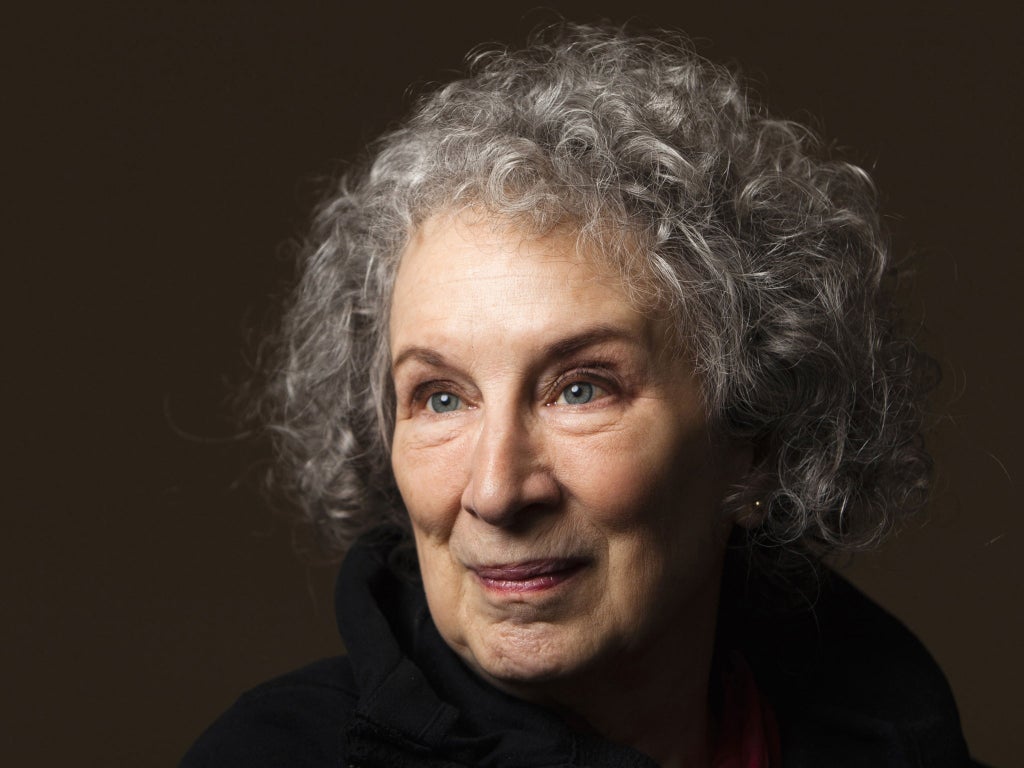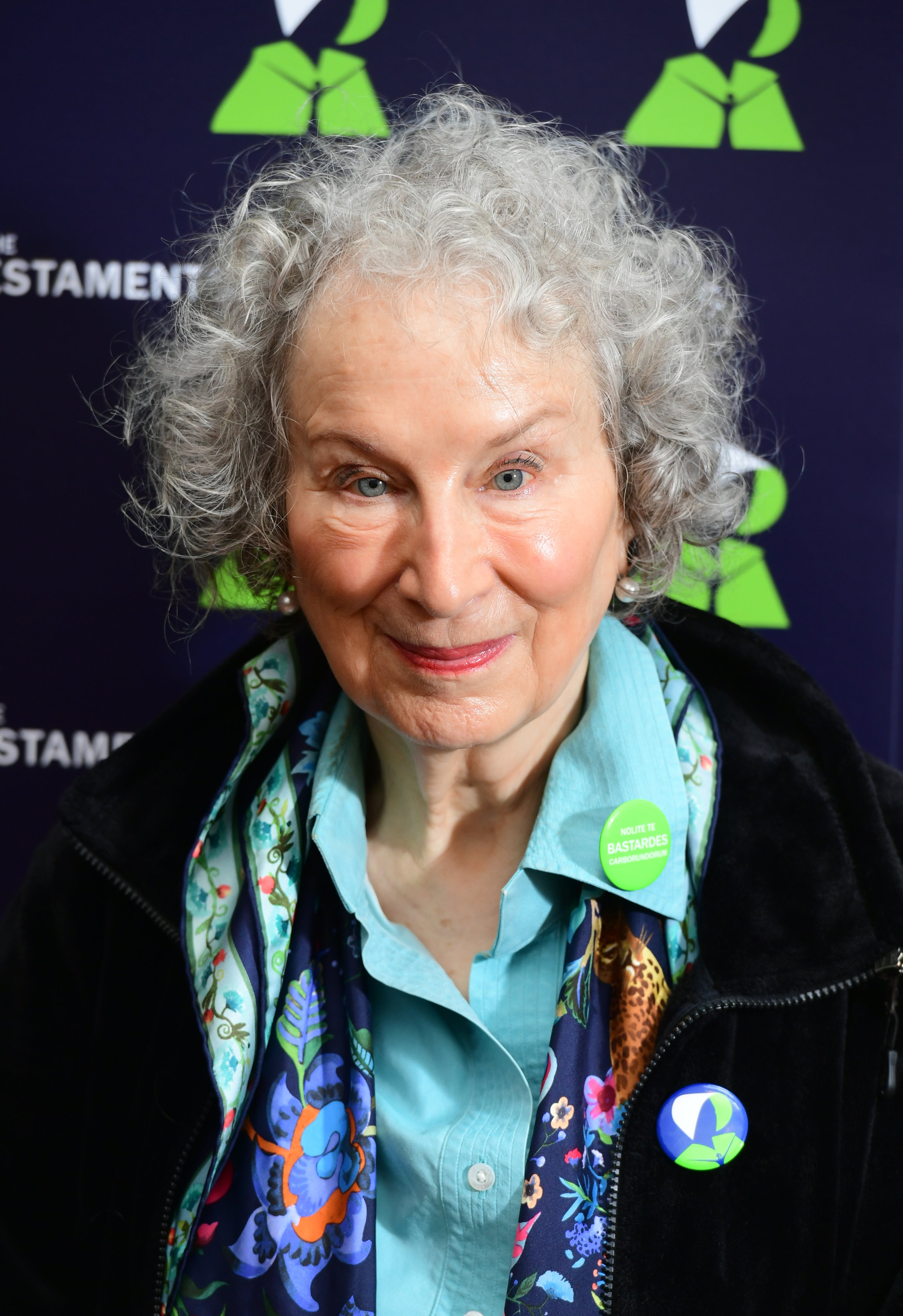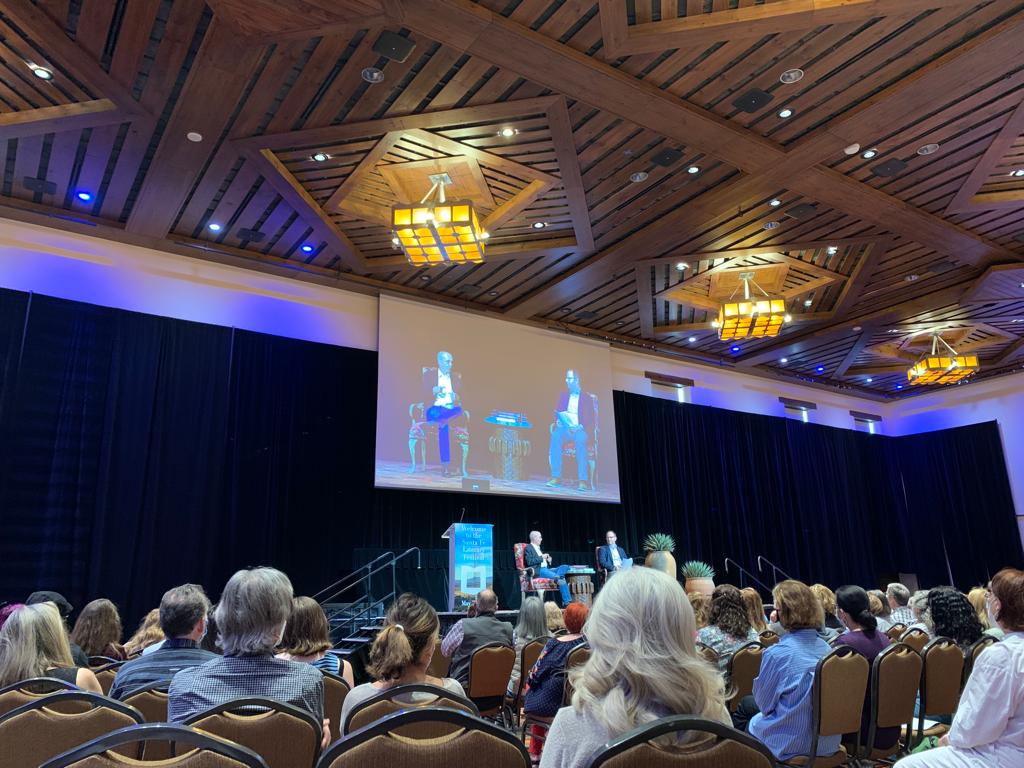
Not many authors come to a literary festival to talk about why they plan never to write again, but bestselling crime novelist Don Winslow is doing just that. On a Saturday afternoon in Santa Fe, the author of more than 20 books — including The Border, Savages and his latest, City on Fire — calmly explains to an audience why he decided to put down the pen.
“Our times right now are extremely perilous,” he says, “and we don’t get to choose the times we live in. I’m not a political person… but now I think now is the time to devote my resources elsewhere.” When he says “elsewhere,” Winslow means toward activism. As he sees it, “we can no longer bring spoons to a knife fight” when far-right politicians and judges are working to take away Americans’ rights.
Winslow isn’t afraid to bring up the specific issue whose shadow hangs over all cultural discourse right now: abortion. Three weeks before the literary festival opened, a leaked Supreme Court memo showed that justices plan to overturn landmark abortion legislation Roe v Wade. Two weeks later, another leaked memo — this time from the Department of Homeland Security, and published by Axios — said that the US government is preparing for a surge in politically motivated violence after the 1973 ruling, that enshrined constitutional protections for women seeking abortion, is overturned. The fact that preparations are being made for the end of abortion rights in the US is alarming to many. And already state governors, emboldened by the promises of a post-Roe future, are pushing through legislation that would have been unthinkable even 10 years ago: Most notably, Oklahoma lawmakers passed the harshest bill in US history on May 20, banning all abortions except in cases of rape, incest or saving the life of the mother. That makes Oklahoma the “first state in the country to completely outlaw abortion — even while Roe still stands,” said president of Planned Parenthood Alexis McGill Johnson in a statement when the news broke.
“I am very aware that people like Kamala Harris and other women are perfectly capable of defending themselves,” Winslow says onstage in New Mexico. “They’re smarter than I am, they’re tougher than I am… I just want them to know they don’t have to do it alone. I want other men to say — I’m talking about men like me, white guys — they are going to get in this fight. Not in a parochial, paternalistic way, but we’re going to stand by their side and we’re going to fight.”
Winslow’s speech is a welcome addition to the conversation, which all too often only features women. And while the bravery of women who speak out about reproductive rights is undeniable, it is also true that little can be achieved if men aren’t willing to fight beside us.
A star speaker at the festival, Margaret Atwood, was thanked by Buddhist activist Roshi Joan Halifax for “making this issue so in-our-face”. And it’s fair to say that few people have done more to keep women’s rights prominently in the public consciousness than Atwood, whose dystopian novels The Handmaid’s Tale and The Testaments deal directly with a world where forced pregnancy is routine, and who still writes around 30 political articles per year for various publications. Atwood is frank when talking about what might happen if Roe v Wade is overturned. If abortion is a criminal offense, “you get to accuse people of having abortions,” she says, before imitating the potential blackmailer: “You had one, and now where’s my $10,000?”

Atwood never minces her words. “As far as I’m concerned, this is payback for MeToo,” she says during her speech at the inaugural Santa Fe Literary Festival. A week earlier, she published excerpts from an essay from her upcoming collection, Burning Questions, in which she compares women who can’t access abortion to slaves or unwilling conscripts. “Women who cannot make their own decisions about whether or not to have babies are enslaved because the state claims ownership of their bodies and the right to dictate the use to which their bodies must be put,” the excerpt reads. “...Enforce childbirth if you wish but at least call that enforcing by what it is. It is slavery: the claim to own and control another’s body, and to profit by that claim.”
Atwood adds in her essay that: “Nobody likes abortion, even when safe and legal. It’s not what any woman would choose for a happy time on Saturday night. But nobody likes women bleeding to death on the bathroom floor from illegal abortions either.” In a couple of short sentences, she expertly deconstructs the central conceit of the “pro-life” cause, a cause that does not actually protect the lives of innocent little babies so much as condemn hundreds of desperate women to a painful, underground death. And on the Saturday afternoon of the literary festival, Atwood also lays bare the hypocrisy of Supreme Court justices who say they simply want to stick to the original intents of the Constitution: “If you take the original Constitution [as it is and apply it], a lot of people are going to lose their rights, including all women… and anybody that doesn’t own property.”
The story of “Roe” from the Roe v Wade legislation is a fascinating one in itself, a true example of America’s complicated relationship with women’s freedoms. Norma McCorvey was given the pseudonym Jane Roe when she took her case to the Supreme Court, arguing that state bans on abortion were unconstitutional. She won the case too late to abort her own pregnancy, and carried a child to term that was ultimately adopted. In a bizarre twist, she then publicly announced that she was “pro-life” years after the ruling and spent years on the pro-lifer circuit talking about her supposed regrets in helping to legalise the procedure.
In another Atwoodian or perhaps Winslowian twist, McCorvey then made a “deathbed confession” on camera in 2020 to a documentary maker who had gone to film her final months as she lived with a terminal illness. McCorvey said that she was given money she couldn’t refuse by the anti-abortion movement and told simply to turn up to events and repeat a few well-worn lines about her regrets, saying, “I took their money and they put me out in front of the camera and told me what to say, and that’s what I’d say.”

The final confession of “Roe” shows up the anti-abortion movement for what it is: seedy, controlling and immoral. If the newly conservative Supreme Court does overturn her ruling in 2022, honouring her final words will be more important than ever. Thankfully, a number of public figures are prepared to step up to the plate.
“I’ve never seen a bully come up to two people standing side-by-side, never mind 20, or 200, or 2,000, or 200 million,” says Winslow. “And we have those numbers, and we should be using them.”
The Independent, as the event’s international media partner, is providing coverage across each day of the festival with exclusive interviews with some of the headline authors. For more on the festival visit our Santa Fe Literary Festival section or visit the festival’s website.







